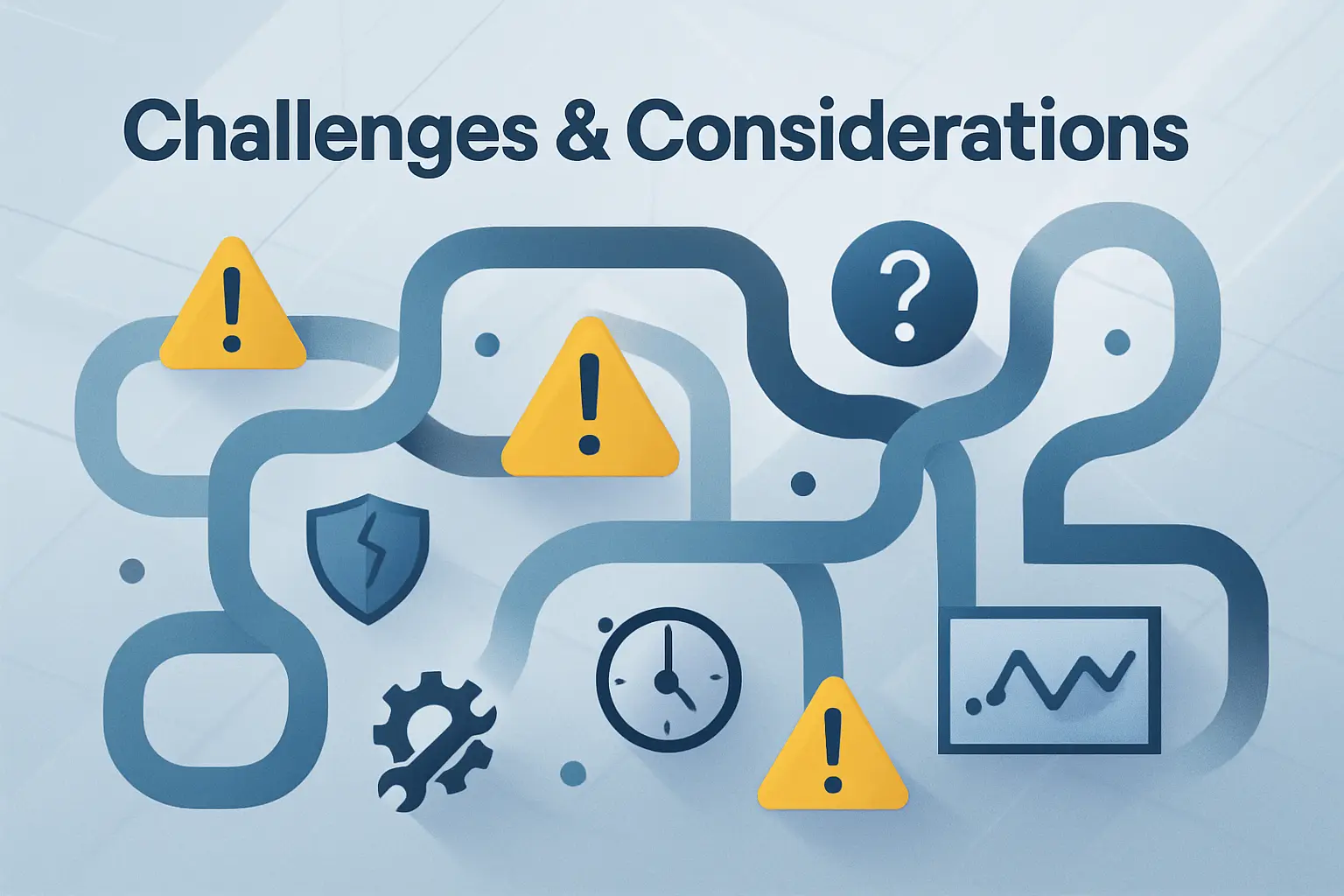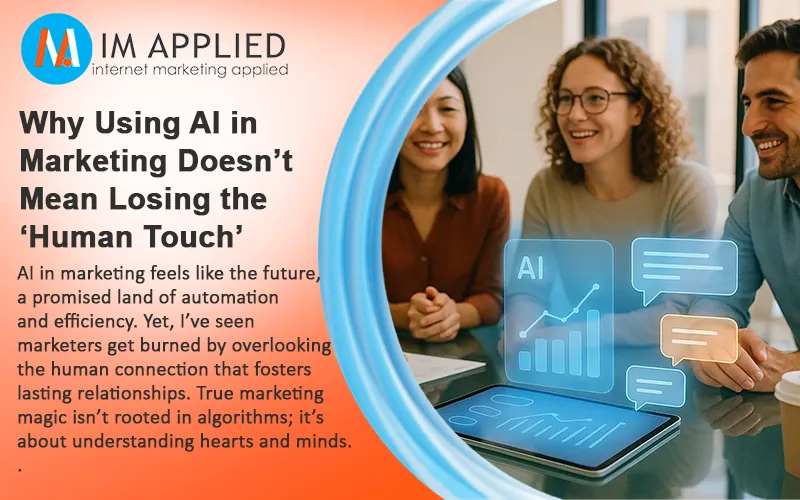Why Using AI in Marketing Doesn’t Mean Losing the ‘Human Touch’
Karl Marais | 12 June 2025
The Role of AI in Modern Marketing
Artificial intelligence has rapidly shifted from buzzword to essential tool, reshaping how brands approach marketing.
With AI, brands can analyze immense data, tailor campaigns, and automate routine tasks.
Efficiency improves, but creative vision and human insight remain core to any winning strategy.
Despite concerns about depersonalization, AI-powered marketing often deepens understanding of customer behavior, adapting campaigns in real time.
AI’s machine learning transforms data into actionable insights, elevating engagement when paired with human intuition.
For practical examples, see how predictive AI tools drive engagement.
AI in marketing isn’t just about automation: it’s about empowering marketers to focus on strategy and storytelling, while leaving repetitive work to machines.
Used thoughtfully, AI allows brands to connect more meaningfully with their audiences.
Empowering Creativity, Not Replacing It
AI’s true strength is freeing marketers to focus on creativity by automating tedious tasks.
Tools for content optimization and idea generation let teams uncover new angles and reach wider audiences—faster.
AI suggests resonant topics, analyzes trends, and accelerates workflow. But human skills—originality, vision, and empathy—drive campaigns that connect.
Position AI as a collaborator, enhancing output without overshadowing creative minds.
Learn more about blending creativity with AI.
Understanding AI’s Capabilities and Limitations
To use AI in marketing wisely, a clear grasp of what it can—and cannot—do is fundamental.
AI streamlines processes and offers predictive insights, but over-reliance risks losing nuance and creative spark.
Ethics must guide AI. Responsible use enhances, rather than replaces, human judgment, especially regarding data use and privacy.
Effective AI marketing balances automation with core creativity and oversight.
Machines process vast data quickly, but interpreting emotional resonance and cultural shifts is a uniquely human strength.
The best AI strategies integrate tech advantages with human empathy and context.
For more on responsible AI, read about Ethics in AI Marketing.
AI Trends Shaping Marketing
AI is ushering in unmistakable changes.
Conversational marketing—with chatbots and AI-powered assistants—enables brands to interact instantly and effectively with customers.
Predictive analytics unlock insights into likely customer behavior, empowering marketers to optimize campaigns and anticipate needs.
Personalization, another key trend, uses AI to tailor content and recommendations, heightening engagement and satisfaction with every interaction.
Together, these advances are revolutionizing marketing—not at the cost of humanity, but by enabling smarter, more relevant outreach.
Interested in actionable tools? See How to Set Up an AI-Powered Lead Scoring System.
Generosity and Authentic Interaction
Authentic marketing is rooted in genuine customer interactions and transparent practices.
Trust is built through open, clear communication—AI can support this, but never substitute for it.
AI delivers impressive scale and precision, but the uniquely human quality of generosity—putting customer interests first—drives loyalty and connection.
When marketers pair data-driven insights with empathy, brands cultivate trust and lasting relationships.
For more on combining tech and human creativity, see AI and Human Creativity Coexisting in Marketing.
Strategies for Humanizing AI in Marketing
Teams can tap into AI’s strengths without losing the personal touch. Humanizing AI means creating interactions that feel tailored and authentic.
A clear brand voice provides consistency, transforming generic AI interactions into meaningful dialogues.
Storytelling further personalizes outreach—AI helps scale stories, but it’s the human element that makes them memorable.
Emotional connections matter. Use AI analytics to understand preferences, then deliver messages that resonate on a personal level.
The goal: show customers they’re valued and understood.
Harnessing AI doesn’t mean reducing humanity—it enhances the ability to engage emotionally while maintaining efficiency.
For more, visit how AI and human creativity can coexist.
Challenges and Considerations
AI brings challenges alongside opportunity. Bias is a concern: AI models reflect the data they’re fed, sometimes perpetuating unfair assumptions.
Regularly audit and update data and algorithms to minimize this risk.
Data security is vital. With AI reliant on massive datasets, protecting sensitive information is non-negotiable.
Robust security prevents breaches and preserves trust.
Ethical considerations also loom large. As AI takes larger roles in decision-making, align processes with evolving ethical and legal frameworks.
Maintain human-in-the-loop oversight to ensure AI outcomes remain aligned with brand values.
Addressing these issues allows marketers to harness AI’s benefits while safeguarding their brand’s humanity.
The Path Forward: Embracing Human-AI Partnership
A thriving future in marketing arises through human-AI synergy.
AI helps process information and streamline execution, but it’s the human elements of empathy and creativity that inspire connections.
Adopt a balanced approach: let AI drive operational efficiency while people focus on strategy and authenticity.
Marketing innovation should always serve genuine human connection.
Actively listen to customers, blending personal insight with data-driven methods. This ensures authenticity amid technological change.
Recognizing the complementary strengths of humans and AI lays the groundwork for memorable customer experiences and strong business results.
Preparing for Future Marketing Trends
Stay ahead by embracing emerging technology while sharpening team skills. Technology evolves fast; so must your strategies.
Enhance customer relationships with personalized, data-driven outreach that stands out in crowded markets.
Continuous learning prepares teams for whatever tomorrow brings, ensuring authenticity and effectiveness endure.
Next Steps for Marketing Teams
Implementing AI requires both tech adoption and cultural change. Focus on upskilling, regular training, and collaborative practices.
Approach AI as an ally. Ongoing education and openness to innovation make integration seamless and successful, amplifying your team’s productivity and results.
Embracing AI for Better Marketing
AI in marketing elevates efficiency, personalization, and business growth—but only when paired with the human touch.
By freeing up creative resources and providing deep audience insights, AI supports campaigns that feel both smart and sincere.
The future of marketing lies in the partnership between technology and human intuition.
When marketers blend analytical power with empathy and creativity, they produce campaigns that truly resonate.
Balance Between AI and Human Collaboration
Success demands balance—technology amplifies, but people inspire.
Human oversight maintains ethical standards while refining AI’s insights into meaningful messaging.
This synergy sustains trust, creativity, and authentic relationships. Dive deeper into ethical AI marketing.
Encouragement to Experiment and Innovate
Don’t be afraid to experiment. Use A/B testing and analytics to pinpoint where AI delivers value, and continue adapting your approach.
Innovation is a process; let AI and human creativity evolve together as you explore what resonates most with your audience.
Embrace the possibilities. With the right balance, marketers can deliver outstanding, human-centered experiences—powered by AI.




